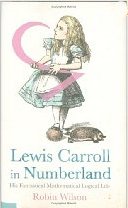Maths on the move!
Podcast Archive
Find all of our Podcasts from 2007 onwards
"Astronomers are used to large numbers, but few are as large as the odds I'd have given this celebration today," is how Astronomer Royal Martin Rees started his presentation at Stephen Hawking's birthday symposium yesterday. He was talking about the 1960s when he first met Hawking who was then already suffering motor neurone disease. But Rees' prediction has been proved wrong. Hawking turned 70 yesterday and since the time of their first meeting he has made enormous contributions to cosmology and physics.
This podcast featuring Paul Davies, a theoretical physicist and cosmologist at Arizona State University and Director of BEYOND: Centre for Fundamental Concepts in Science, explores this difficult question and accompanies our What is time article.
The Velodrome, with its striking curved shape, was the first venue to be completed in the London Olympic Park. Plus talks to structural engineers Andrew Weir and Pete Winslow from Expedition Engineering, who were part of the design team for the Velodrome, about how mathematics helped create its iconic shape.
Last month leading researchers in sports technology met at the Royal Academy of Engineering in London to demonstrate just how far their field has come over recent years. The changes they make to athletes' equipment and clothes may only make a tiny difference to their performance, but once they're added up they can mean the difference between gold and silver. In this podcast we talk to some leading sport engineers.
Some have suggested that the changes that are needed to meet the climate challenge are similar in scale to the Industrial Revolution of the 19th century. And since the built environment is responsible for over half of our energy consumption, most of the changes will need to be made here. For this podcast we talked to engineer Alison Cooke, who manages a project called Energy Efficiency in the Built Environment, and two PhD students at the Centre for sustainable Development in Cambridge, and find out how engineers work with Government, business and other groups to help ensure a sustainable future.
Quantum physics is a funny thing. With counterintuitive ideas such as superposition and entanglement, it doesn't seem to resemble reality as we know it, yet quantum physics is an incredibly successful theory of how the physical world operates. Plus attended the conference Quantum Physics and the Nature of Realtiy at the University of Oxford in September 2010. We spoke to Andrew Briggs, John Polkinghorne, Nicolas Gisin, David Wallace, Roger Penrose and Andrea Morello about how we can resolve the mysteries of quantum physics with our experience of reality. And we find out why quantum physics is just like riding a bike...
Why do people become mathematicians? What's it like being one and what are the perks of a job in academia? We talk to young mathematicians at the International Congress of Mathematicians, as well as to established research mathematician Larry Guth, to find out.
What's the point of the Fields Medal and other maths prizes? Who decides who gets one? And when will we have the first female medallist? Rachel talks to László Lovász, current president of the International Mathematical Union (IMU), Martin Grötschel, the IMU's secretary, and Ragni Piene, the new chair of the Abel Prize committee about all this and more.
We talk to Brendan Mackay, who spoke at the ICM, about how he debunked the bible codes.
We were lucky enough to interview Stas Smirnov at the ICM in Hyderabad, India. As well as being very pleased at winning the Fields Medal and being recognised by his colleagues, Stas reminded us that mathematicians don't do research to win medals. They do it because of curiosity and he personally can't wait to get back to his theorems.
Here's the full and uncut version of our interview with Fields Medallist Cédric Villani. We'll publish a slightly more polished version when we get the time, with more explanations, but thought you'd like the chance to listen to the whole thing.
By cleverly cross-referencing different databases it can be possible for evil adversaries to reveal intimate information about individuals. Given that it's hard these days to keep your details off these databases, what can be done to protect privacy? We talk to Cynthia Dwork from Microsoft, whose talk at the ICM showcases some mathematical tools to keep our details safe.
We're at the massive conference dinner, talking to Alex Bellos, author of best-selling popular maths book Alex's adventures in numberland, mathematician Colva Roney-Dougal, other delegates and ourselves.
A very tired Marianne and Rachel discuss the atmosphere at the first day of the ICM when the Fields medals were awarded...
We talk to delegates of the International Conference of Women Mathematicians, taking place in Hyderabad, India, about the challenges faced by female mathematicians around the world.



